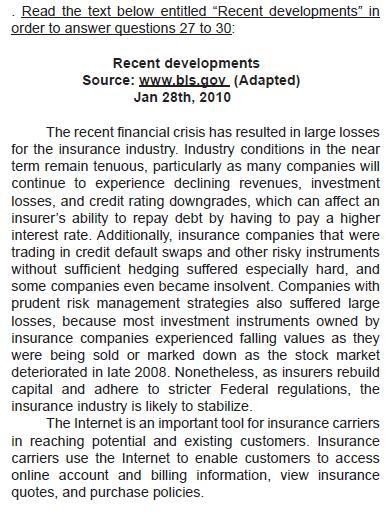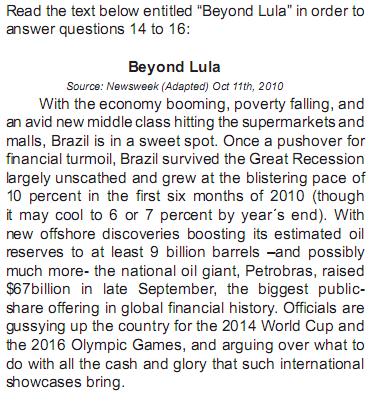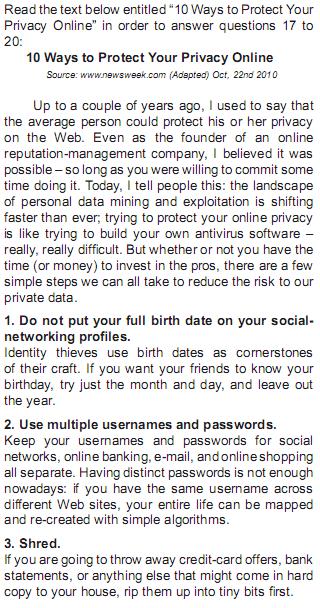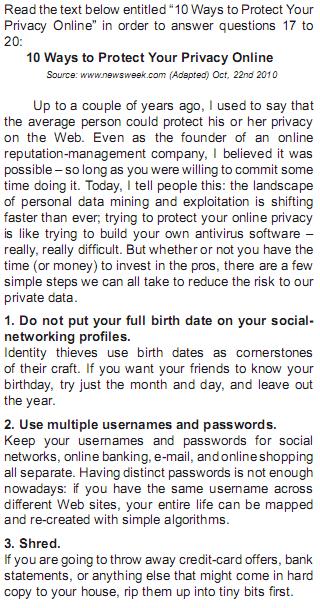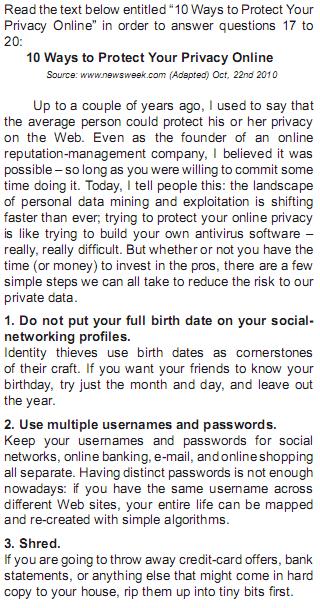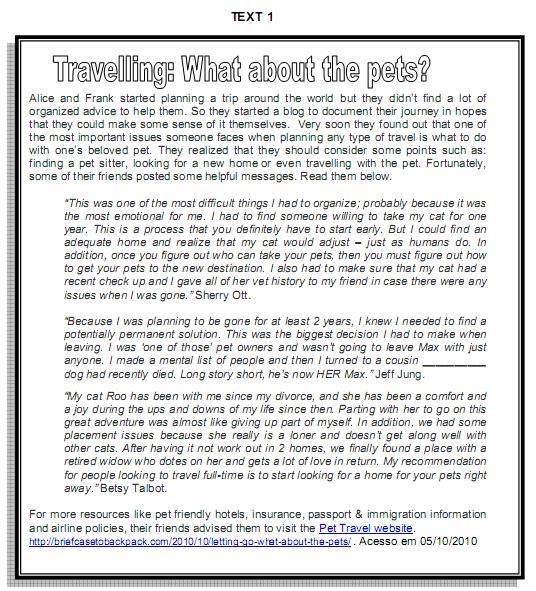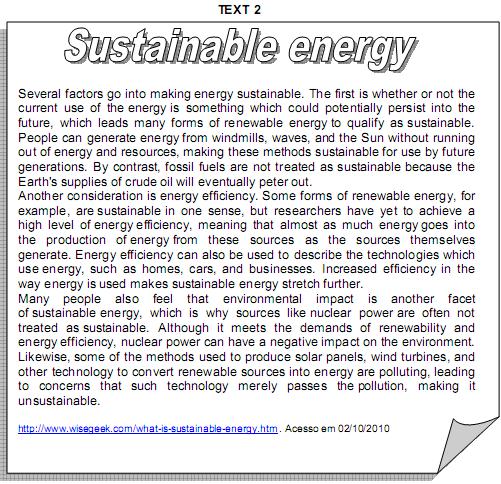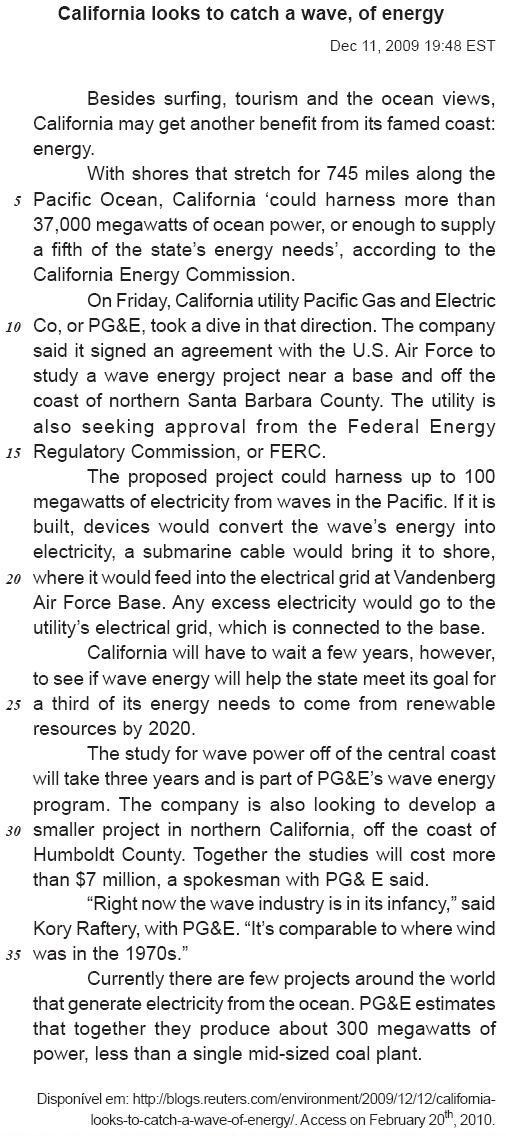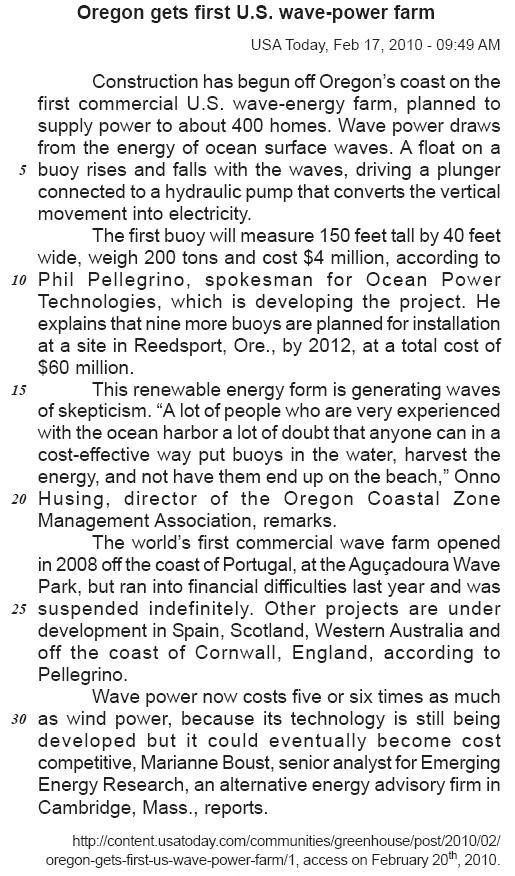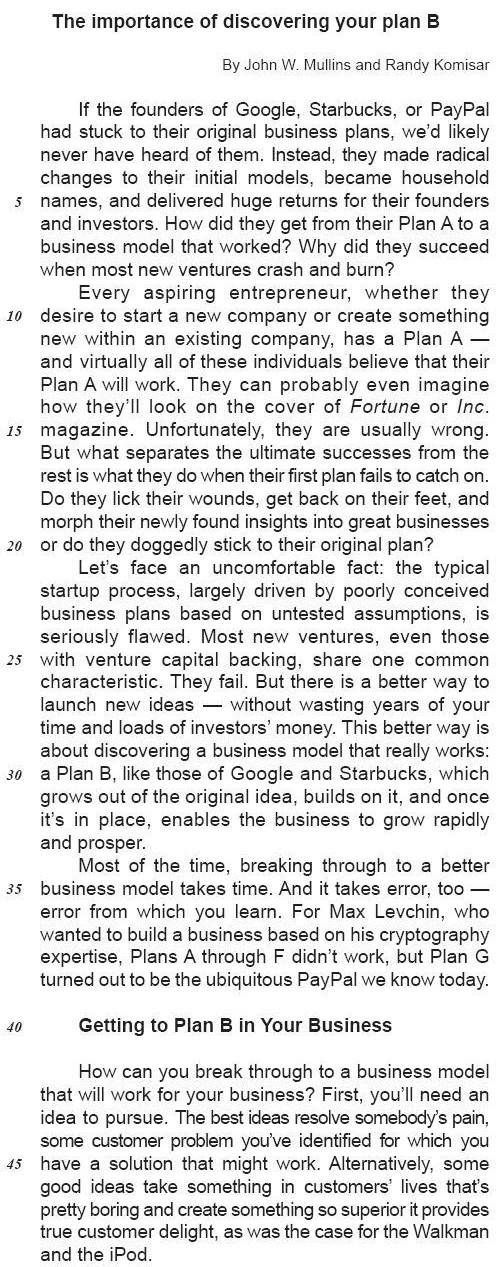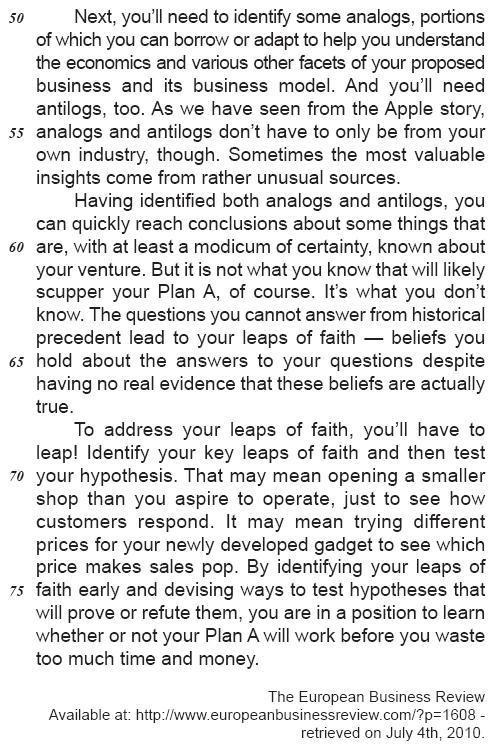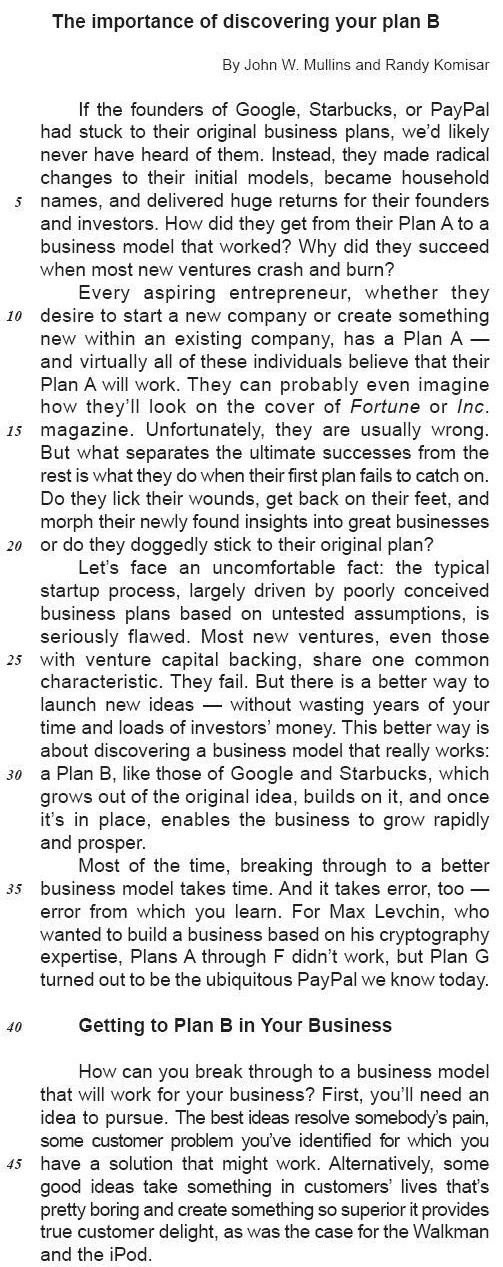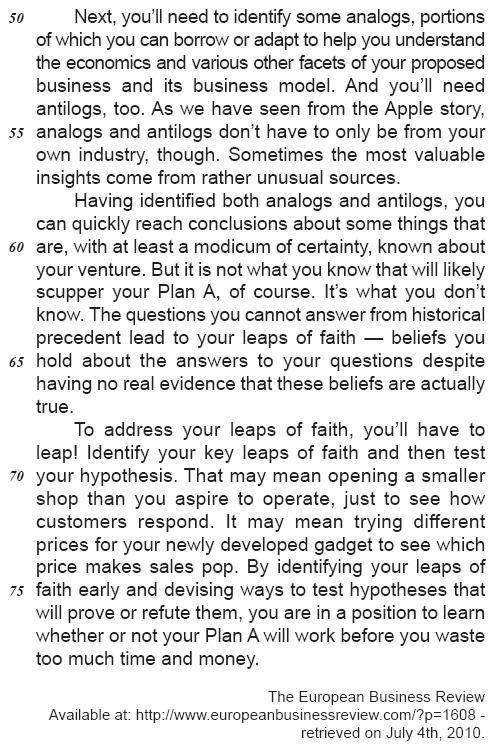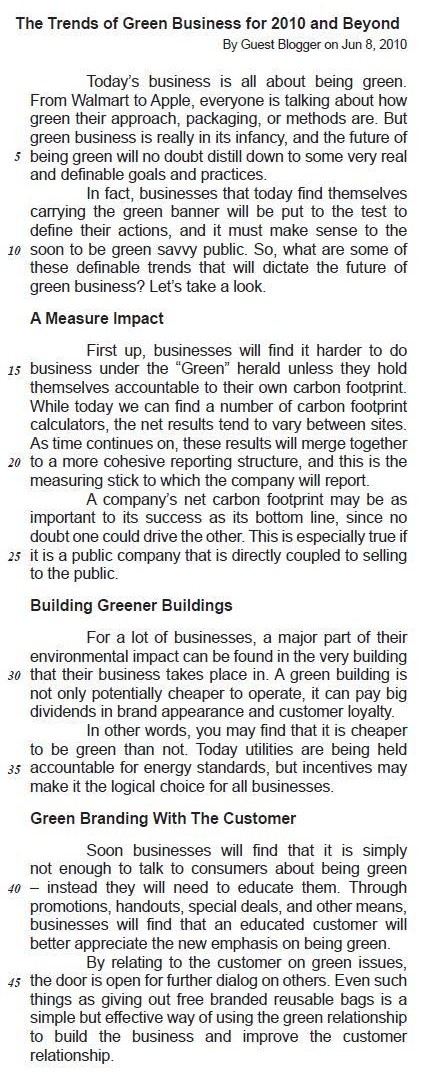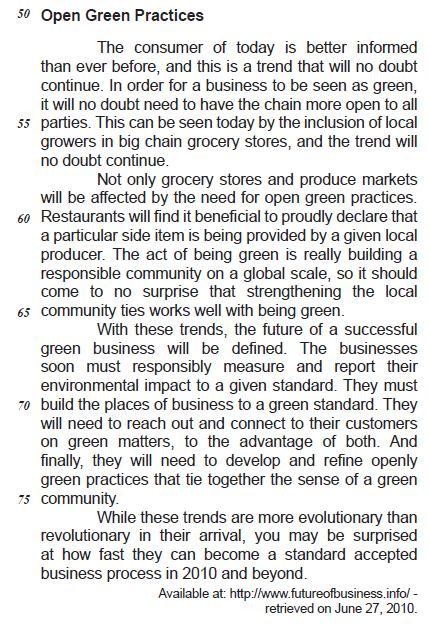Read the text below entitled 10 Ways to Protect Your
Privacy Online in order to answer questions 17 to
20:
10 Ways to Protect Your Privacy Online
Source: www.newsweek.com (Adapted) Oct, 22nd 2010
Up to a couple of years ago, I used to say that
the average person could protect his or her privacy
on the Web. Even as the founder of an online
reputation-management company, I believed it was
possible so long as you were willing to commit some
time doing it. Today, I tell people this: the landscape
of personal data mining and exploitation is shifting
faster than ever; trying to protect your online privacy
is like trying to build your own antivirus software
really, really difficult. But whether or not you have the
time (or money) to invest in the pros, there are a few
simple steps we can all take to reduce the risk to our
private data.
1. Do not put your full birth date on your social-
networkingprofiles.
Identity thieves use birth dates as cornerstones
of their craft. If you want your friends to know your
birthday, try just the month and day, and leave out
the year.
2. Use multiple usernames and passwords.
Keep your usernames and passwords for social
networks, online banking, e-mail, and online shopping
all separate. Having distinct passwords is not enough
nowadays: if you have the same username across
different Web sites, your entire life can be mapped
and re-created with simple algorithms.
3. Shred.
If you are going to throw away credit-card offers, bank
statements, or anything else that might come in hard
copy to your house, rip them up into tiny bits first.
According to the author, when throwing away credit card offers or bank statements, one should
According to the author, when throwing away credit card offers or bank statements, one should
The word which in the technologies which use energy, such as homes, cars, and businesses. refers to
William Penn (1644-1718), founder of Pennsylvania. Son of an admiral, he was sent to a Puritan school and was expelled
from Oxford as a dissenter in 1660. Sent to Ireland to manage the family estates, he regularly attended the Quaker meeting at Cork,
and on his return to England he was twice imprisoned for proselytizing, but nonetheless retained connections with the court. In
1681, Charles II repaid a debt owed to Penn's father by granting him a large province on the west bank of the Delaware river in
North America. Penn drew up a frame of government providing for religious toleration in the new colony, which he named
Pennsylvania. After he had supervised the building of Philadelphia (1682-4), he returned to England and, on James II's accession,
secured the release of some 1,200 Quaker prisoners. Out of favour after the Glorious Revolution, he returned to America in 1699,
but financial mismanagement forced him to mortgage his rights as proprietor of the colony.
(Gardiner, J.,& Wenborn, N. (eds.) (1995). The History Today Companion to British History. London: Collins & Brown.)
In 1681, Penn became the owner of Pennsylvania because:
Google, Starbucks and PayPal are mentioned in paragraph 1 (lines 1-8) since they
According to paragraphs 7 and 8 (lines 38-49), educating customers to become green is beneficial to green businesses because customers
In questions 46 to 50 you will be analyzing a series of reading activities that an EFL (English as a Foreign Language) teacher has prepared for her students in the 8th grade (8o ano do Ensino Fundamental).
After doing Activity 3 with her students, the teacher came across the text below and decided to bring it to class as a complementary activity (Activity 4) to further develop her students critical reading skills. She asked them to work in pairs in order to compare both texts.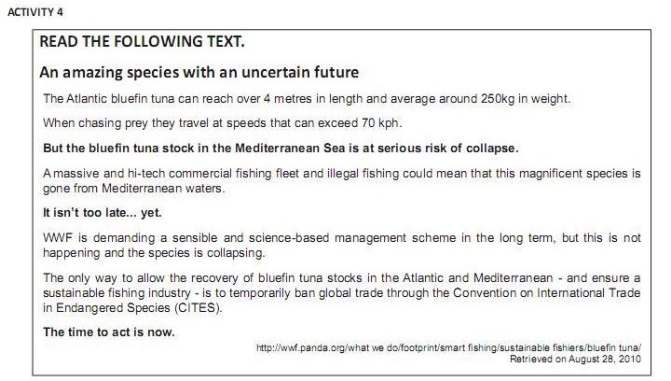
After Activity 4, the teacher expected the students would realize that

